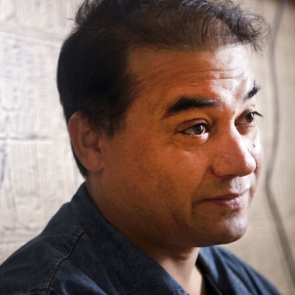UN findings underscore the importance of protection of human rights defenders in follow-up actions
Front Line Defenders welcomes the recent publication by the UN Human Rights Office (OHCHR) of the long-awaited assessment of the human rights situation in Xinjiang (Xinjiang assessment), as well as a series of findings and conclusions by other UN human rights mechanisms on a wide range of systemic human rights challenges in the People’s Republic of China, including reprisals against human rights defenders.
Authoritative and rigorously researched, the Xinjiang assessment released on 31 August 2022 provides credible and comprehensive evidence of “arbitrary and discriminatory detention” of a significant proportion of Uyghurs, Kazakhs, and members of other primarily Muslim ethnic groups in the Uyghur Region - which the Chinese government calls the Xinjiang Uyghur Autonomous Region. The assessment concludes that these violations “may constitute international crimes, in particular crimes against humanity.”
The assessment criticised the Chinese government’s vaguely defined laws and policies on counter-terrorism, “extremism”, and “separatism”, which enable arbitrary and discriminatory enforcement that criminalises and restricts “acts of legitimate protest, dissent and other human rights activities”. It also raised concerns about the arrest and long-term imprisonment of Uyghur scholars, with references to emblematic cases taken up by UN human rights experts, such as the case of human rights defender Ilham Tohti who is serving a life sentence after being convicted in 2014 under charges of “separatism”. The assessment also documented patterns of intimidations, threats and reprisals, by Chinese state actors as well as by neighbouring states, against Uyghurs and others who conduct human rights advocacy from outside of China.
In addition to the Xinjiang assessment, recent findings of grave human rights violations throughout China by other UN mechanisms also highlight the repression of human rights defenders as a key concern. In July 2022, the UN Human Rights Committee, in its concluding observations on the implementation by the Hong Kong government of the International Covenant on Civil and Political Rights (ICCPR), expressed concerns about the arbitrary arrests and detention of human rights defenders under the National Security Law and sedition law, calling for the suspension of enforcement of these laws and for their reform or repeal.
On 2 September 2022, the UN Committee on the Rights of Persons with Disabilities (CRPD), in its concluding observations on China, expressed concerns about continuing pressure on and censorship of human rights defenders and civil society organisations for their advocacy work on disability rights. It also highlighted the increasing reprisals against them, in particular for their cooperation with the UN. The Committee called on the authorities to promptly “release human rights defenders with disabilities who were arbitrarily deprived of their liberty under charges of terrorism and subversion of national security.”
The UN treaty-monitoring committees responsible for women’s rights and economic, social and cultural rights have also previously made similar recommendations to Chinese authorities to protect individuals and organisations who defend these rights. Ahead of their next review of China’s records in 2023, these two committees have recently raised concerns and questioned the government about its implementation of these recommendations on protecting women’s rights and ESC rights defenders.
According to the latest UN statistics, the UN Working Group on Arbitrary Detention has found China in violation of its international human rights obligations in at least 102 cases since 1993. A large number of these cases concern human rights defenders. The Working Group has repeatedly warned China that “widespread or systematic imprisonment or other severe deprivation of liberty in violation of the rules of international law may constitute crimes against humanity.” Front Line Defenders is not aware of any Chinese officials who have been held to account for these violations.
In the UN Secretary-General’s latest annual report on cases of reprisals against human rights defenders who engage with UN mechanisms, China is among the countries with the most number of outstanding reprisal cases recorded: 15 human rights defenders and one human rights organisation.
Since the Xinjiang assessment’s publication, the Chinese government has said it would no longer cooperate with the UN Human Rights Office, and repeatedly attacked the Xinjiang assessment and other Special Procedures mandate holders for their advocacy. This is a clear indication that good-faith efforts by the UN and other member states at engagement and dialogue are not being reciprocated, while grave human rights violations continue unabated in China.
The persistent impunity for the long-standing and widespread human rights violations in China should spur effective actions as a matter of urgency. This urgency is underscored by a joint call on 9 September 2022 by 45 UN human rights experts, who affirmed their support for the findings of the Xinjiang assessment, and reiterated their previous call on UN Member States to convene a special session at the Council to “address human rights issues more broadly in China precisely because key issues of concern, especially arbitrary detention, enforced disappearances, restrictions to movement, privacy, freedom of religion, freedom of expression are occurring in other parts of the country premised on grounds of national security.”
Front Line Defenders believes that human rights defenders play an indispensable role in generating and sustaining progress in the promotion and protection of all human rights. Restrictions on and reprisals against their legitimate work is a key structural factor that contributes to the continuation and escalation of violations. For any international actions taken to address the human rights crisis in China to be effective, they must integrate and mainstream the protection of human rights defenders in a safe and enabling environment as a cross-cutting goal.
Front Line Defenders calls on the international community to take immediate, effective steps to pursue accountability, by establishing an independent investigative mechanism into grave human rights violations in China, including Hong Kong, Tibet and the Uyghur Region. These steps should be informed by the Xinjiang assessment’s findings and by the structural challenges identified by independent civil society, as well as UN Special Procedures and Treaty Bodies, particularly on the protection of human rights defenders.

